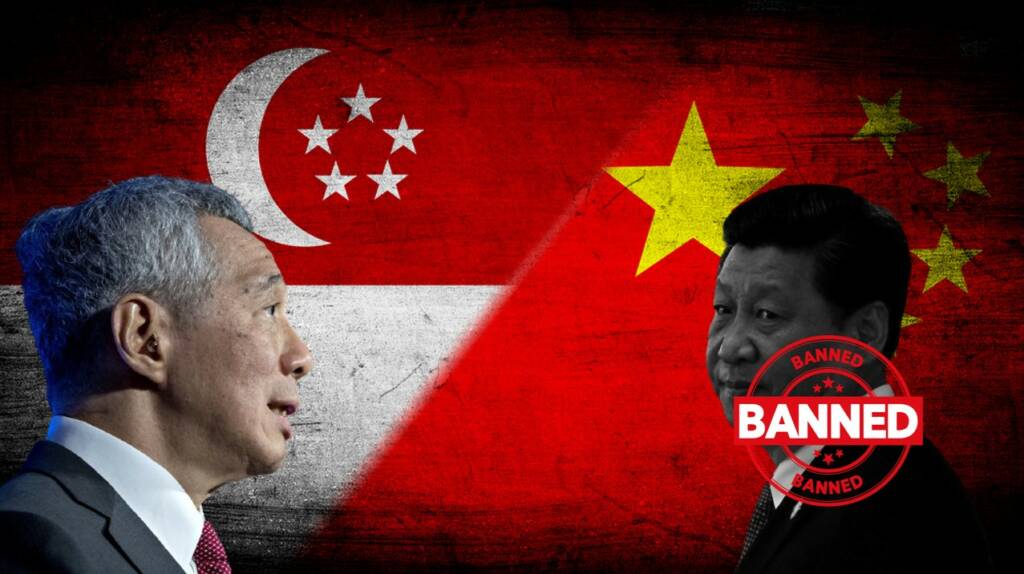For the Chinese property investors, there is simply no respite, inside or outside the Communist country. You must be aware of how the Evergrande crisis and the downfall of other Chinese real estate giants have led to falling property prices in China. Practically, the Chinese property sector is dead. So, Chinese investors were looking to invest in Singapore but even that door has been shut now.
Chinese investors were taking over the Singaporean real estate market:
2021 has been a horrifying year for the Chinese property market. There is simply no way that a mainland Chinese citizen can make a prudent property investment in his own country.
So, the Chinese investors were trying to take over the Singaporean real estate market. As per data from Cushman and Wakefield, a property consultancy, Chinese buyers represented a quarter of all foreign property purchases in the first three quarters of this year.
Wong Xian Yang, Cushman & Wakefield’s associate director for research in Singapore and Southeast Asia, said, “Amid the turbulent regional economic and geopolitical conditions, foreign buyers [including Chinese investors] remain on the lookout for good deals in Singapore.”
Chinese investors were going to flood the Singaporean property market in 2022:
Juwai IQI, a real estate sales and media company predicted in September that mainland China buyers would dominate the Singaporean market in 2022. The company stated, “Mainland Chinese have long been the most active foreign buyer group in the Singapore market. We feel that Chinese buyers will be back in strength in the last quarter of 2021 and 2022. We are already hearing from our network of buyers that Singapore is in their sights.”
It added, “Chinese will outnumber all other buyer groups next year. Investors are seeking greener pastures. In China’s Tier 1 cities, prices are down and look unlikely to recover in the next few years. New home sales are faltering. In Shenzhen, for example, prices are down by 15 per cent compared to six months earlier.”
Juwai IQI also predicted that Hong Kong residents will increase their purchases in Singapore by at least 25 percent in the first quarter after direct travel becomes possible.
Therefore, mainland China and Hong Kong investors had made complete plans to shift the losses suffered due to lack of opportunity in the Chinese markets by shifting all their attention to Singapore’s property sector. This was the only way they could have offset losses suffered in the domestic market.
Read More: 4 more Chinese real estate companies topple, even Singapore feels the jolt
Chinese investments in Singapore have pushed the real estate market in the island city-State beyond its economic fundamentals. This year, condominium purchases by Singapore permanent residents went up by 55.3%, with foreign purchases rising by 45%.
Singapore cancels Chinese investors:
While China was looking to shift the burden of its real estate crisis to Singapore, the city-State has taken measures to cool down the housing market. It has imposed a fresh set of residential property curbs for the first time since 2018, and the new set of restrictions targets foreign investors in particular.
The new curbs include raising additional stamp duties for second-home buyers and foreign buyers. It also includes measures like tightening borrowing limits for public housing apartments. Developers themselves would have to pay higher stamp duties of 35 percent, up from 25 percent, for purchasing residential projects.
Read More: Singapore bears the brunt of China’s malpractices in the US
The way Chinese investors were investing frantically in Singapore had led to rising property prices in the city-State and now the Singaporean government has decided to act to “reduce the risk of a self-reinforcing cycle of price increases” that would affect affordability in the housing market.
Singaporean Minister for National Development Desmond Lee said, “Left unchecked, prices are likely to run ahead of economic fundamentals.” Lee added, “This will increase the risk of a destabilizing correction later on that will hurt many households.”
The new Singaporean curbs must have taken the Chinese investors by surprise. With vaccinated travel lane arrangements and reopening of borders, more permanent residents and foreigners were expected to return and boost demands, pushing prices even further.
Their hopes however have been dashed by Singaporean government curbs that insulates the property market in the city-State from mainland China and Hong Kong. 2021 thus ends as a double whammy for Chinese property investors- first, their local markets went to the dogs and now Singapore has cancelled them bluntly.
